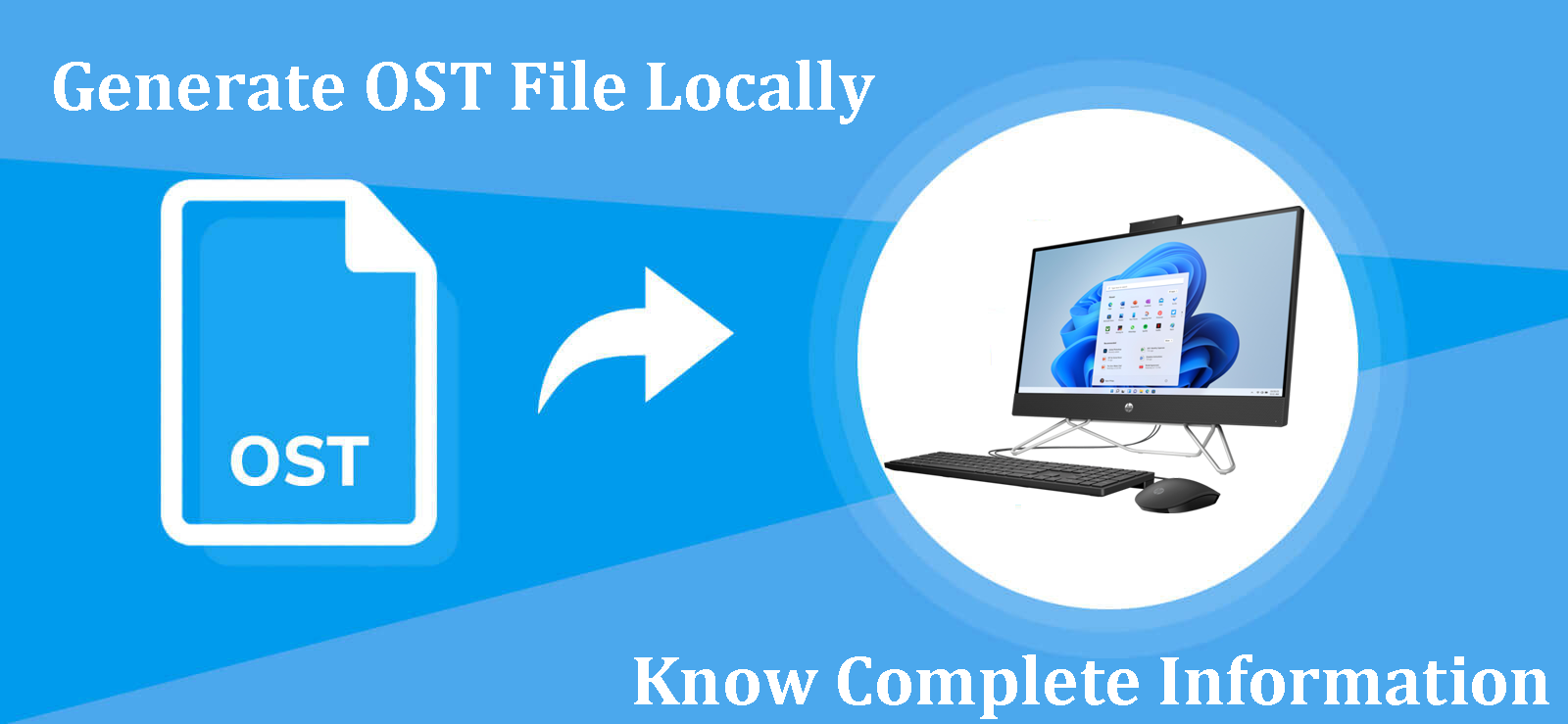Microsoft Outlook is basic email client for users where two data files are created OST and PST. Offline storage file generate OST file locally when ‘Cached Exchange Mode’ is enabled. This means Outlook stores copy of mailboxes in OST file extension. This file is usually located at ‘C:\Users\Admin\AppData\Local\Microsoft\Outlook. Here, you can get all OST files configured by any email account in Outlook.
This OST file is very useful for users as it helps users to access their mailbox data even when no internet or slow internet connectivity is there. The changes done in this offline mode are automatically synced to the Exchange Server after getting internet connection.
When the account in Outlook is configured using IMAP then OST file is created. No doubt this file is very useful for users but due to some security reasons, OST file is not considered the suitable format. There are many reasons behind it like vulnerability for corruption, non-portable file, can’t be opened on another system, etc. Due to this, users must need to move data into PST file format, another flexible format used by Microsoft Outlook.
Download for Windows Buy Now for Windows
Table of Contents
Default Storage location of OST file in Microsoft Outlook
For opening OST file in MS Outlook, it is required to configure an email account to Outlook. If the account is configured properly to Outlook, OST file is generated in your hard disk at default location.
The default location where OST file is generated is: C:\Users\Admin\AppData\Local\Microsoft\Outlook
How to open OST file in MS Outlook?
You can’t directly open or access OST file in Outlook. For this, it must be converted into PST file format. This file is bound to a specific profile and PC in which you have configured the account. However, it is possible to import and open OST file items in Outlook only after converting it into PST file format.
PST: It is another file format of MS Outlook that you can open easily into your Outlook account. This file is importable into MS Outlook using Import/Export wizard.
Issues with OST Files
OST files can easily be corrupt, damaged and become inaccessible. Then, users are unable to access OST data items. Many times, if Exchange Server account becomes inaccessible or deleted, OST file get damage. Also, synchronization problems between Outlook & Exchange Server also make OST file orphaned. Hence, users won’t be able to access data items inside this OST file.
Here, we will know how users can access data of this inaccessible OST file. But before this, know reasons that corrupt OST file.
Reasons behind OST file corruption
- Virus or malware attack
- Sudden or force termination of Outlook
- Defective storage medium
- When Exchange account is deleted accidentally
- Outlook account is deleted accidentally on Exchange Server
Possible Ways to Convert OST Mailbox data to PST file
The only way to restore data from inaccessible OST file is to convert it into PST format. For this task, users have many ways. Let us know them:
Method 1. Import/Export wizard
Requirements:
- Outlook installation
- Active Outlook account
- Open MS Outlook and then go to File, choose Open & Export and finally Import/Export option
- From options, pick Export to file and click Next
- Choose Outlook PST option.
- Choose mail account to export items
- Include sub folders option should be marked
- Browse path to save PST file
- Hit Finish button.
After getting data into PST file, open it easily into different Outlook versions.
Download for Mac Buy Now for Mac
Method 2. With Expert Solution
With OST to PST Exporter, an automated program that helps you to convert orphaned, inaccessible or damaged OST file directly into PST file in few clicks. You can work with this software without Exchange connectivity and Outlook installation. It smartly extracts all items like emails, contacts, notes, tasks, calendars, etc. from OST file to save into PST file.
Conclusion
This guide talks about OST file generation, its default location and ways to open it in MS Outlook. After reading this post, all your doubts regarding OST file generation and conversion into PST file to use in Outlook have been cleared.

